Problem-Solving Skills Normal Writing Worksheets for Ages 4-7
6 filtered results
-
From - To
Boost your child's problem-solving skills with our engaging Normal Writing Worksheets designed for ages 4-7! These worksheets provide fun and interactive activities that encourage young learners to think critically and creatively. Each exercise blends writing practice with essential problem-solving scenarios, helping kids develop their analytical thinking while enhancing their literacy skills. Whether it’s determining solutions to simple puzzles or completing tasks with imagination, these worksheets make learning enjoyable. Perfect for at-home practice or classroom use, our resources empower children to tackle challenges confidently and cultivate a love for learning. Start exploring the world of problem-solving with our captivating worksheets today!
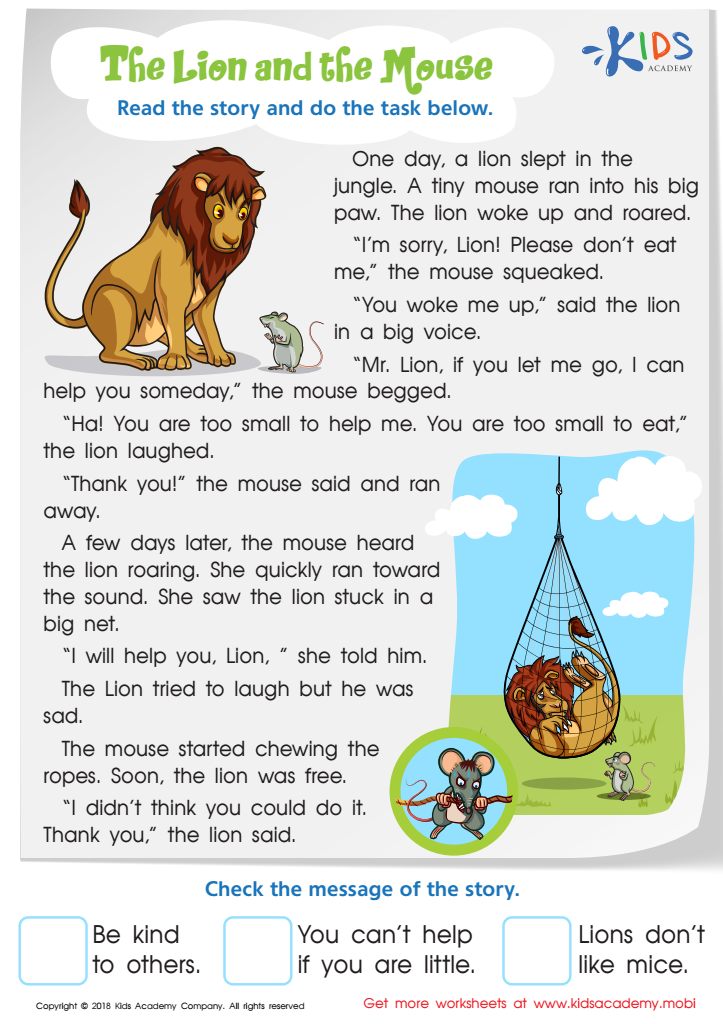

The Lion and the Mouse Worksheet
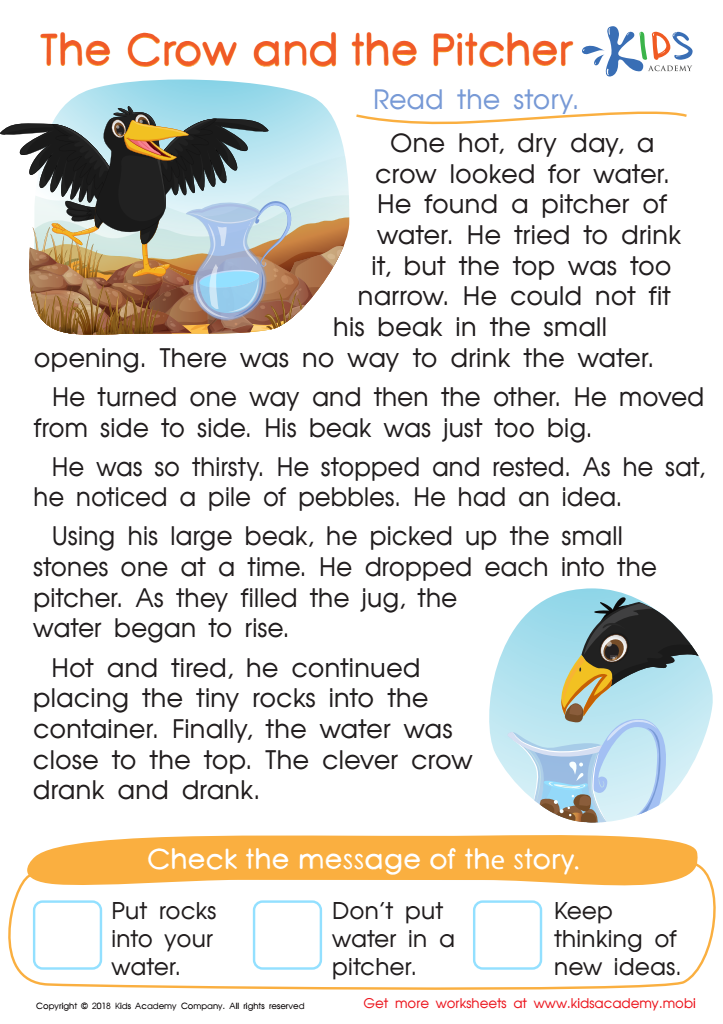

The Crow and the Pitcher Worksheet
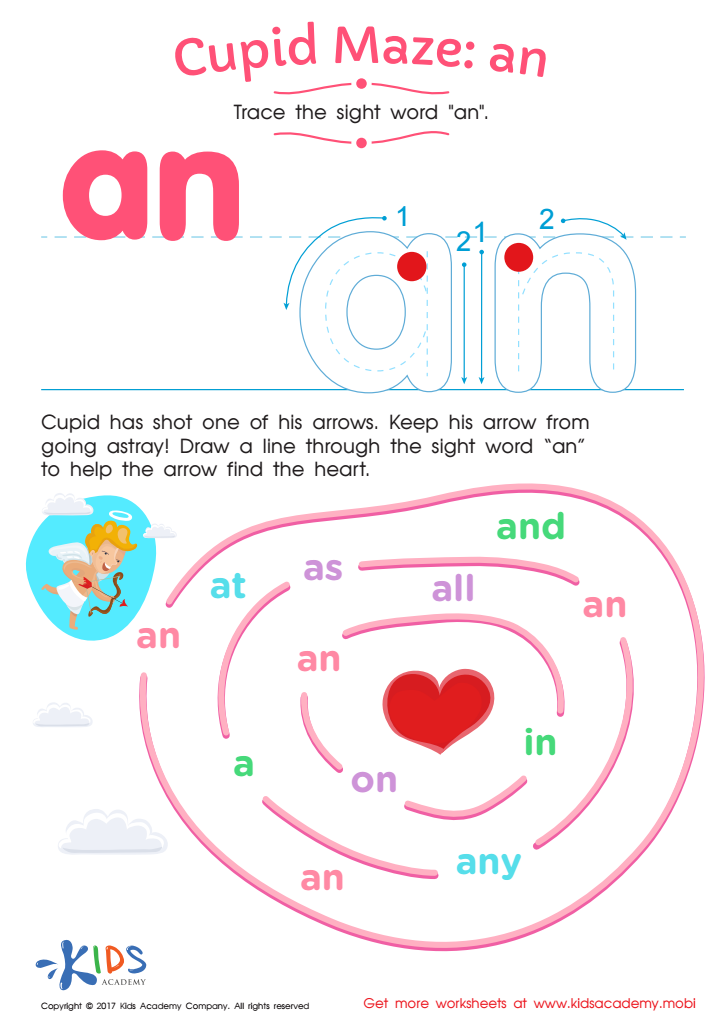

Cupid Maze: An Printable
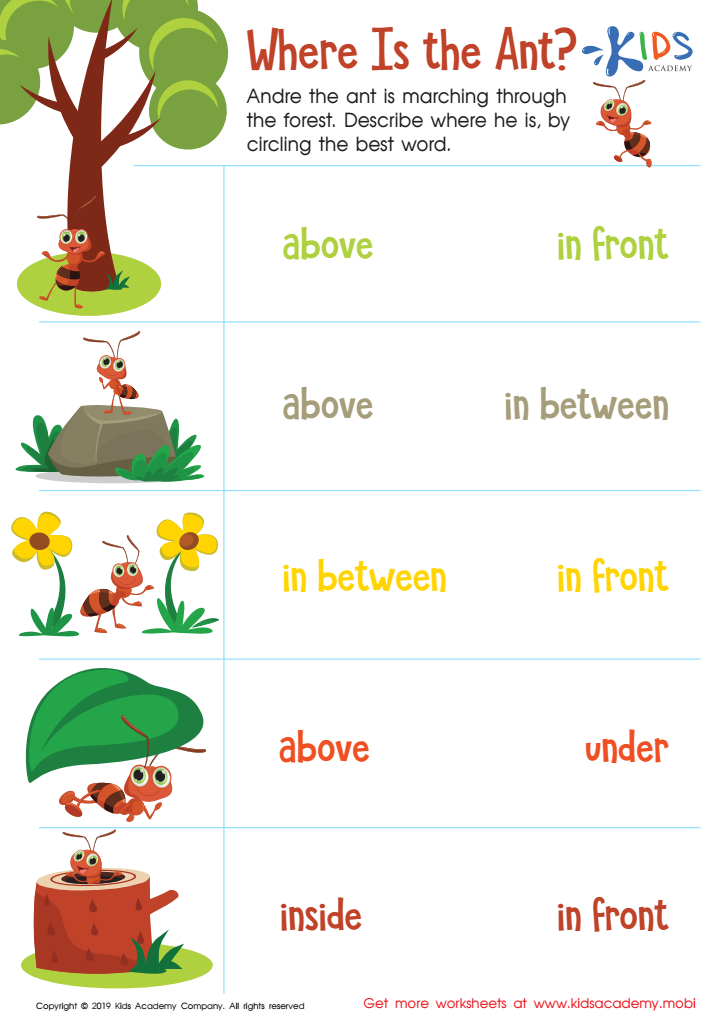

Where Is the Ant? Worksheet


Long Vowel Maze /o/ and /i/ Worksheet
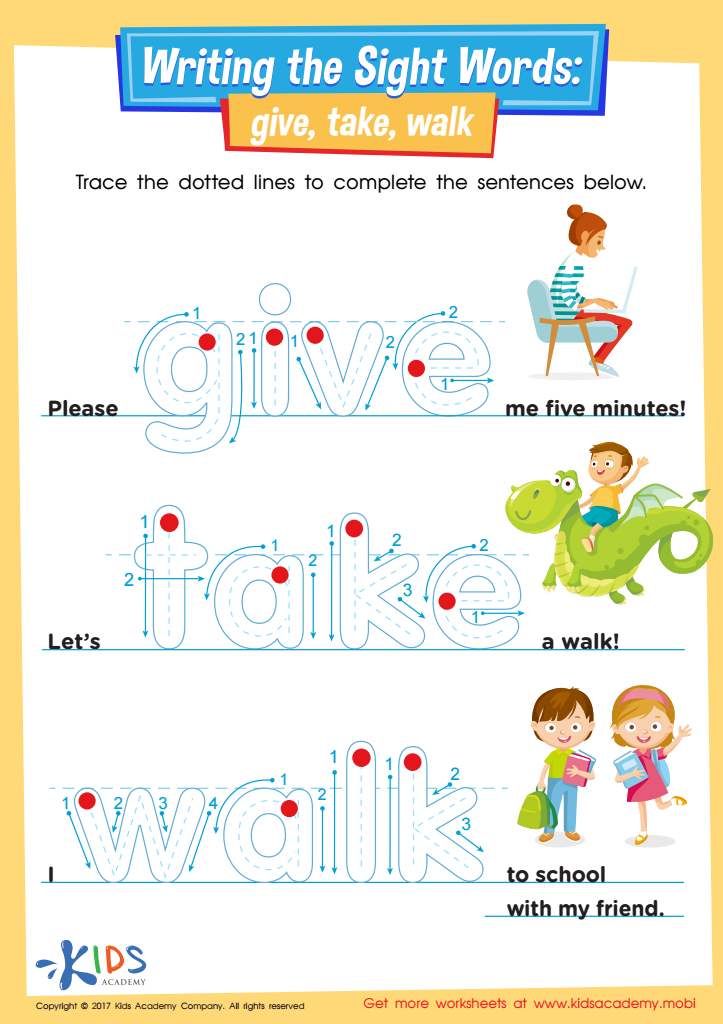

Give, Take, Walk Printable Sight Words Worksheet
Problem-solving skills are essential for children ages 4-7, as they form the foundation for future learning and development. Parents and teachers should care about nurturing these skills for several important reasons.
Firstly, problem-solving encourages critical thinking. At this age, children are naturally curious and eager to explore. By engaging them in activities that require problem-solving, adults can help cultivate a mindset where questioning and reasoning are valued. This leads to enhanced cognitive skills that will support more complex tasks later in life.
Secondly, developing problem-solving strategies grants children the tools they need to navigate challenges independently. As they encounter hurdles in academics and social situations, strong problem-solving skills enable them to find effective resolutions. This fosters resilience and confidence, which are crucial for their emotional and social development.
Additionally, collaboration is key to problem-solving. Working in groups to solve puzzles or complete tasks teaches young children the importance of communication, teamwork, and respecting different viewpoints. By prioritizing this skill, parents and teachers are not only preparing kids for school tasks but also for real-life interactions.
Overall, problem-solving skills enhance a child’s ability to think critically, build confidence, and interact positively with others, laying the groundwork for lifelong learning and success.
 Assign to My Students
Assign to My Students
















